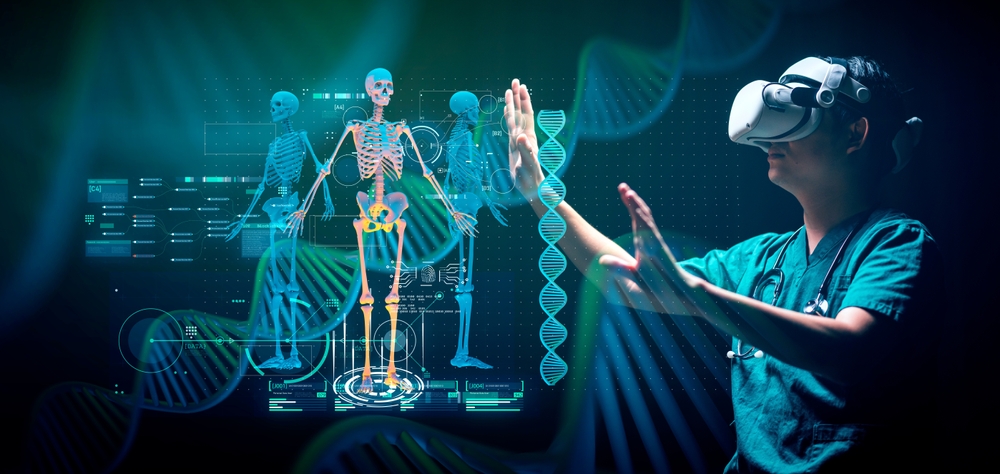
‘.AI’s Impact on Healthcare: Unveiling New Frontiers of Medicine‘.AI’s Impact on Healthcare: Unveiling New Frontiers of Medicine Artificial intelligence (AI) is revolutionizing healthcare, propelling medicine into uncharted territories. Its transformative power is driving innovation, improving patient outcomes, and shaping the future of medical care. Enhancing Diagnostics and Treatment: AI algorithms can analyze vast medical datasets, identifying patterns and subtle changes that human eyes might miss. This enables: * Early diagnosis of diseases: AI algorithms can detect diseases, such as cancer and Alzheimer’s, in their early stages, significantly improving patient prognosis. * Precision medicine: AI can tailor treatment plans to individual patients based on their genetic profile and health history, optimizing outcomes. * Personalized drug discovery: AI can accelerate the development of new drugs by analyzing patient data and predicting how they will respond to specific therapies. Automating Tasks and Improving Efficiency: AI can automate repetitive and time-consuming tasks, freeing up healthcare professionals for more complex and patient-centered care. This includes: * Electronic health records (EHR) management: AI algorithms can extract and organize information from EHRs, reducing data entry errors and improving accessibility. * Patient scheduling and appointment reminders: AI systems can optimize patient scheduling, reducing wait times and improving patient satisfaction. * Administrative tasks: AI can automate tasks such as insurance processing and billing, streamlining administrative processes and freeing up staff time. Virtual Health and Telemedicine: AI is enabling remote healthcare through virtual health platforms and telemedicine. This allows patients to access medical care from the comfort of their own homes, especially valuable in rural or underserved areas. AI can: * Provide virtual consultations: AI-powered chatbots and video conferencing enable healthcare professionals to consult with patients remotely, reducing the need for in-person visits. * Monitor patient health data: AI algorithms can continuously monitor patient data from wearable devices, such as blood pressure and heart rate, alerting healthcare professionals to any anomalies. * Provide personalized health recommendations: AI can analyze patient data and provide tailored recommendations for healthy lifestyle changes and preventative care. Challenges and Future Directions: While AI holds immense potential in healthcare, there are challenges that need to be addressed, including: * Data privacy and security: Ensuring the protection and ethical use of patient data is crucial. * Algorithm bias: Algorithms must be trained on diverse and representative data to avoid biased outcomes. * Integration with existing healthcare systems: Smoothly integrating AI technologies into existing medical infrastructure is essential for widespread adoption. Despite these challenges, the future of AI in healthcare is promising. As technology advances and data becomes more accessible, AI will continue to reshape medicine, unlocking new possibilities for patient care, innovation, and efficiency. Embracing AI’s transformative power will ultimately lead to a healthier and more accessible healthcare system for all.
Posted inNews